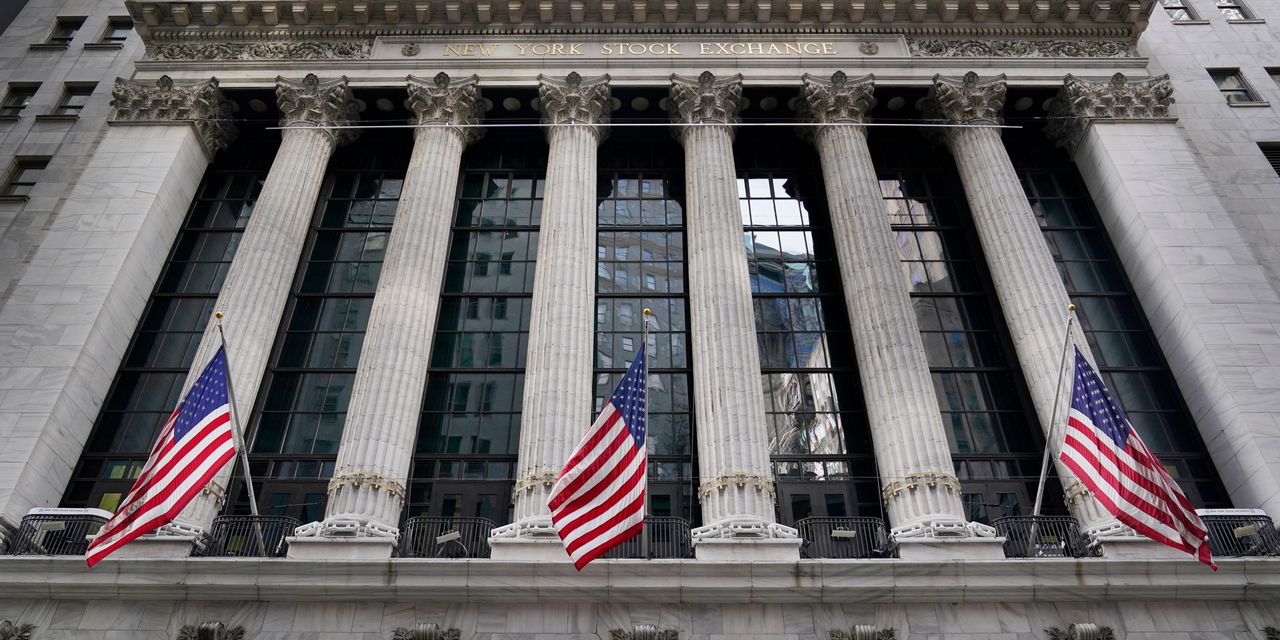

The boom in blank-check companies earlier this year has lured companies to list in New York and has cut into Europe’s share of the global market for initial public offerings.
Signa Sports United, a Berlin-based sports e-commerce and technology platform, is among the latest looking at this route through a special-purpose acquisition company, or SPAC. It is in talks to merge with
Yucaipa Acquisition Corp.
to go public on the New York Stock Exchange. The deal would include the acquisition of the U.K. online bike retailer Wiggle Chain Reaction Cycles and could value the combined company at up to $4 billion, according to people familiar with the matter.
Eleven European companies operating in sectors ranging from packaging to healthcare have announced deals this year to go public through a U.S.-listed SPAC, according to Refinitiv. European exchanges have only attracted four such tie-ups: two in Germany, one in the U.K. and one in Italy.
That divide highlights Europe’s competitive disadvantage when it comes to SPACs. The region has a smaller pool of these vehicles looking for targets to take public on a European exchange.
SPACs are publicly listed shell companies that raise money to make an acquisition. They offer targets a quicker way to go public than a traditional IPO. Their popularity in the U.S. has outpaced Europe because of more accommodating listing rules in some markets and investors’ greater familiarity with the vehicles.
Besides having far more SPACs, the U.S. has more-developed technology and healthcare sectors. These have emerged as leading sources of new listings, said Paul Go, IPO head at Ernst & Young.
In 2015, IPOs on Europe’s exchanges raised $66 billion to lead the three biggest markets with a 34% share, ahead of the U.S. at 19% and Asia, excluding Japan, at 32%, according to Dealogic. The continent’s share has since dropped to about 15% so far this year, while the U.S. leads with about 61%. Asia, excluding Japan, accounts for around 19%.
The postponement of at least three U.S. offerings last week could signal the start of a slowdown in the U.S. IPO market, and the frenzy around SPACs has cooled recently. Even so, Europe is far behind this year.
So far in 2021, U.S. exchanges have attracted at least 324 SPAC listings, of which 309 are still searching for deals. That compares with 10 in Europe, none of which have done a deal yet, according to Dealogic.
Another issue facing Europe is that U.S.-listed SPACs offer potential takeover targets a springboard for geographic expansion, SPAC sponsors said.
“We are looking for a European or Israeli company that is either already present in the U.S. or has a clear rationale for why it would want to expand in the U.S.,” said Tommy Stadlen, chairman of NYSE-listed Tailwind International Acquisition Corp.
In other cases, a deeper and more knowledgeable pool of analysts and investors following a particular industry gives U.S. SPACs an advantage attracting European targets. Such a pool was part of the reasoning behind Luxembourg-based Ardagh Group SA’s pact in February to merge its metal packaging business with
Gores Holdings V Inc.,
a Nasdaq-listed SPAC. The newly created company aims to list on the New York Stock Exchange.
The “peer set and the analysts who cover [the sector] are U.S.-based, and it’s probably fair to say the bulk of the shareholders would be in the U.S.,” said John Sheehan, Ardagh’s investor-relations director.
European stock markets are fighting to keep companies at home. Starting in February,
Nasdaq Inc.’s
exchanges in Sweden, Denmark and Finland introduced rules allowing SPAC listings.
Meanwhile, the
Amsterdam exchange used a March promotional video for a new SPAC listing to tout the goal of its parent company, Euronext NV, to be Europe’s SPAC center. That ambition received support last week with the listing of Hedosophia European Growth. The blank-check company is headed by Ian Osborne, a partner in the U.S. with the SPAC evangelist Chamath Palihapitiya.
The U.K., Europe’s biggest IPO market, is seeking to loosen its listing rules to help the
compete against its New York rivals for SPACs. The country’s stock-market watchdog is expected as early as this summer to eliminate a rule that prevents investors from trading a SPAC’s shares between an acquisition’s announcement and approval of the deal’s prospectus. That change would allow investors to no longer risk being tied indefinitely to a transaction they don’t like, allowing them to bet more freely on SPAC IPOs.
Write to Ben Dummett at ben.dummett@wsj.com
Corrections & Amplifications
Signa Sports United is a Berlin-based sports e-commerce and technology platform. An earlier version of this article incorrectly spelled the company’s name as Sigma. (Corrected on May 21)
Copyright ©2020 Dow Jones & Company, Inc. All Rights Reserved. 87990cbe856818d5eddac44c7b1cdeb8
24World Media does not take any responsibility of the information you see on this page. The content this page contains is from independent third-party content provider. If you have any concerns regarding the content, please free to write us here: contact@24worldmedia.com

Common Mistakes When Using Athletic Field Tarps

High-Performance Diesel Truck Upgrades You Should Consider

Warehouse Optimization Tips To Improve Performance

Fire Hazards in Daily Life: The Most Common Ignition Sources

Yellowstone’s Wolves: A Debate Over Their Role in the Park’s Ecosystem

Earth Day 2024: A Look at 3 Places Adapting Quickly to Fight Climate Change

Millions of Girls in Africa Will Miss HPV Shots After Merck Production Problem

This Lava Tube in Saudi Arabia Has Been a Human Refuge for 7,000 Years

Four Wild Ways to Save the Koala (That Just Might Work)

National Academy Asks Court to Strip Sackler Name From Endowment

Ways Industrial Copper Helps Energy Production

The Ins and Out of Industrial Conveyor Belts